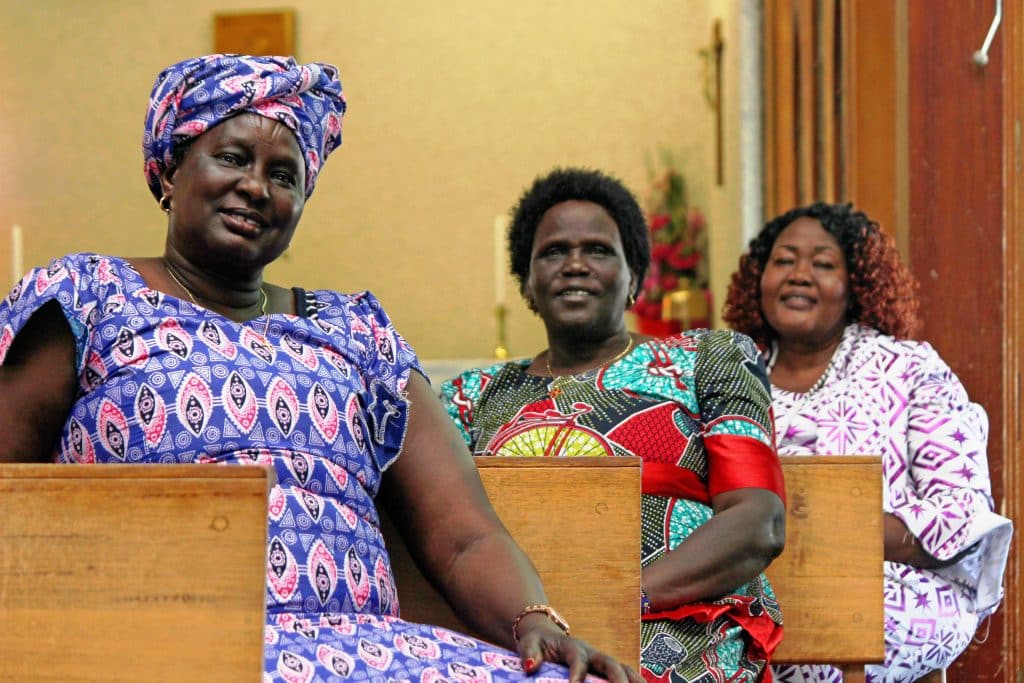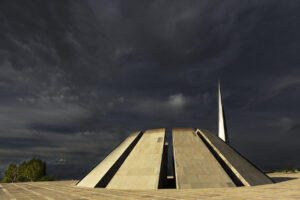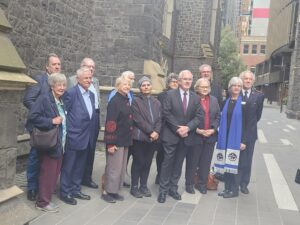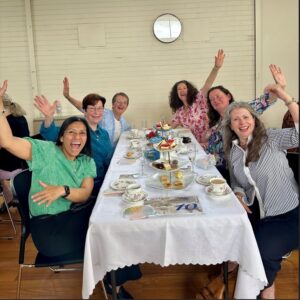
Elspeth Kernebone
20 October 2022
Three South Sudanese women are set to be ordained in the Diocese of Melbourne in part thanks to an ordination program amended to make it accessible.
Tereaza Alfred Audo, Rebecca Adut Mading and Monica Ayor Matoc will be ordained as deacons in February after completing a formation program which recognises a broader range of cultural and educational experiences than traditional programs.
Mrs Ayor Matoc has studied at St Alban the Matyr in St Albans as part of a student placement of the past three years along with Ms Alfred Audo. Mrs Ayor Matoc also did a placement at Holy Trinity in Williamstown.
Read more: South Sudanese women welcome Caroline Welby | Photos
Mrs Ayor Matoc first came to Australia in 2004 from Kakuma refugee camp in Kenya where she had been for 12 years. She lived in Lismore where she raised her seven children.
Mrs Ayor Matoc said she felt the call to ministry early in her Christian life, but she had to go through the war first. She said she saw God in the people she met when she left her home.
“When I ran away, I had nowhere to go, I had no place, no water, and no shelter, but God covered me. I met with some people on the way, and those people they took care of me,” Mrs Ayor Matoc said.
In 2018 a lay minister and a pastor said to Mrs Ayor Matoc that now she spoke English, she should become a pastor.
Mrs Ayor Matoc said if God called her, she would, but she needed time to bring up her children.
But she said, now her children had said: “Mum, we give you the green light to go.”
Mrs Ayor Matoc said she hoped to help people in her community practically, including children and older women in her community, who were unable to drive, did not have homes, and did not have anything.
Examining chaplain and Brotherhood of St Laurence member of the board of directors Jane Freemantle said the three women had felt a call to ordination, but struggled to complete the clinical pastoral education program originally because it was so English-language and hospital focussed.
Read more: Unaddressed burnout, heavy workloads amid ordination shortage
Dr Freemantle said the entire formation program for ordination had been amended to be more suitable for the women, but to make sure they also had the skills they needed when they entered Holy Orders – working with the diocese and Ridley and Trinity colleges.
She said this had created a prototype which could then be used in other areas.
“What we’ve been able to do with the diocese is to say … we want to get the same outcome which is people who are ordained have all the tools of the trade they need, but there are other ways to go about achieving that if we actually think outside the box,” Dr Freemantle said.
“The women who’ve been ordained will be as equally formed as any other person that’s being ordained, there’s been no cutting the corners or doing anything different, except doing it in a different way to ensure they get all the skills.
“We are a hugely multicultural society. You can see today the wonderfully Christian ethos that exists within our Sudanese community, our Karen community, all these different communities. They want to be part of the Anglican Church, and this means we can actually form them in the Anglican Church.”
Trinity College Ministry Education Centre director the Reverend Dr Fergus King said ministry education had risked excluding people who were gifted pastorally, but who could not undertake for a variety of reasons traditional academic programs.
“The diocese is trying to ensure that people with great pastoral potential and gifts, who might not be able to complete traditional programs can still be ordained, and bring their gifts and charisms to enrich the ministry of the diocese,” Dr King said.
For more faith news, follow The Melbourne Anglican on Facebook, Twitter, or subscribe to our weekly emails.







